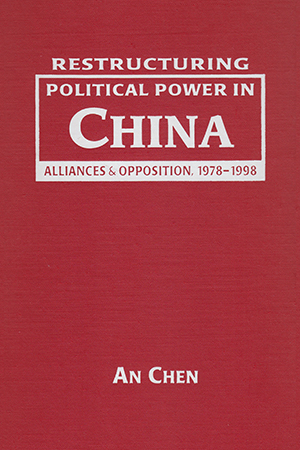This systematic study of China's structural transformation during the past two decades emphasizes the balance-of-power game so ably played by Deng Xiaoping and others among the post-Mao national leadership.
Chen argues that to prevent party cadre opposition to market restructuring—the nemesis of change in other communist states—national leaders manipulated legislative channels and party regulations to allow citizen participation in the implementation of reform programs. Opportunistic realignments at the political level, involving the central leadership, local party cadres, and ordinary citizens, brought "people power" into the policymaking process. That power, suggests Chen, may also presage China's constitutional evolution toward a democratic form of government.
Previously a research fellow at the Chinese Academy of Social Sciences, An Chen is assistant professor in political science at the National University of Singapore.
"A richly detailed examination of power in China since 1978.... refreshingly broad in its scope.... This is a well-documented, insightful book that will quickly find its place in debates on the Deng era."—Laura M. Luehrmann, The China Journal
"This inspiring and insightful book focuses on the balance-of-power game played in post-Mao China.... Highly recommended."—Choice
"This is an important book.... The author has skillfully woven together Western social science concepts of political reform with a wide range of Chinese sources and his own interviews.... this is quite simply an excellent book."—June Teufel Dreyer, American Political Science Review
"Applying an insider's understanding to a wealth of Chinese materials, An Chen explores how China's post-Mao national leaders have managed to achieve economic reform while maintaining political control—first within enterprises, then at the national level, and finally and most extensively at subnational levels. This provocative book constitutes 'must reading' for scholars of post-Mao political reform."—Edwin A. Winckler






